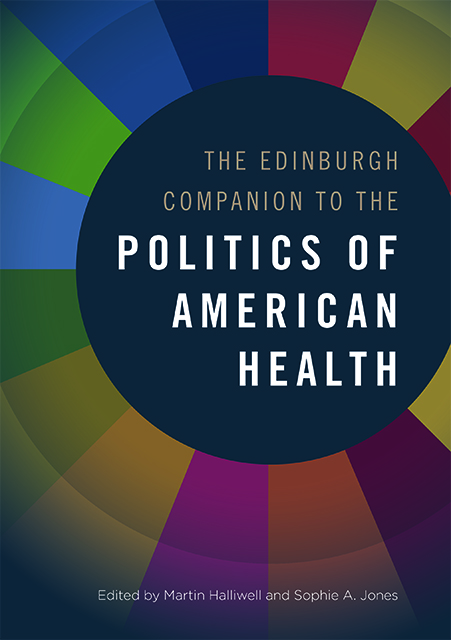Book contents
- Frontmatter
- List of Contents
- Notes on Contributors
- Introduction: The Political Landscapes of American Health, 1945–2020
- I Geography, Community and American Health
- II Critical Health Conditions: Debates and Histories
- III The Politics of Children's Health
- IV The Institutional Matrix of Health Care
- V The White House, Congress and Health Reform
- VI Justice, Ethics and American Health
- VII Public Health and Global Health
- General Bibliography
- Index
24 - The War on Drugs: Nixon, Reagan, Trump
Published online by Cambridge University Press: 12 August 2023
- Frontmatter
- List of Contents
- Notes on Contributors
- Introduction: The Political Landscapes of American Health, 1945–2020
- I Geography, Community and American Health
- II Critical Health Conditions: Debates and Histories
- III The Politics of Children's Health
- IV The Institutional Matrix of Health Care
- V The White House, Congress and Health Reform
- VI Justice, Ethics and American Health
- VII Public Health and Global Health
- General Bibliography
- Index
Summary
On 16 June 2015, celebrity real estate developer Donald J. Trump descended a golden escalator to the lobby of his eponymous tower and announced his bid for the presidency with the claim that Mexico actively exported drugs, crime and rapists to the United States. The country, he complained, ‘has become a dumping ground for everybody else's problems’. As candidate and president, Trump's message centred on grievance, victimization and defence of a mythic white culture, and in his inaugural address he described the American landscape as a scene of ‘carnage’, blighted by drugs, crime and job loss.
In a sense, he was not entirely wrong, despite the wild exaggeration. Although the US crime rate was (and is) near a historic low, the American middle class was (and is) under serious duress as globalization reshaped the American economy and decades of economic growth were absorbed by the wealthy. At the time of Trump's election, the country was also in the midst of an opioid and overdose crisis, which claimed nearly 64,000 lives in 2016 alone. Trump's message of grievance and loss resonated in that context, and sociologists quickly noticed a strong correlation between overdose rates, economic decline and support for Trump. Once in office, Trump declared a public health emergency and promised a return to the tough-on-crime approach of the drug war but delivered vanishingly few policy initiatives.
The re-emergence of the federal drug war under Trump – this time almost solely as a style of thought and rhetoric – was but the latest turn in a very long saga, one that stretches back more than one hundred years. Since the dawn of the twentieth century, the problems associated with drugs and addiction have fallen squarely between the politics of public health and the politics of law and order. Yet for much of that time, punishment and policing have held far greater sway than the comparatively softer strategies associated with treatment and rehabilitation.
The instinct to criminalize, punish and deter certain kinds of drug use (while tolerating and medicalizing other, often similar forms) finds its purest expression in the ‘War on Drugs’, most commonly associated with Presidents Richard Nixon and Ronald Reagan. This chapter examines the intersection of politics, medicine and secu-rity during the campaigns waged by Nixon, Reagan and Trump to show how consistently the drug war has served as an expression of a particular brand of American identity.
- Type
- Chapter
- Information
- The Edinburgh Companion to the Politics of American Health , pp. 406 - 423Publisher: Edinburgh University PressPrint publication year: 2022



